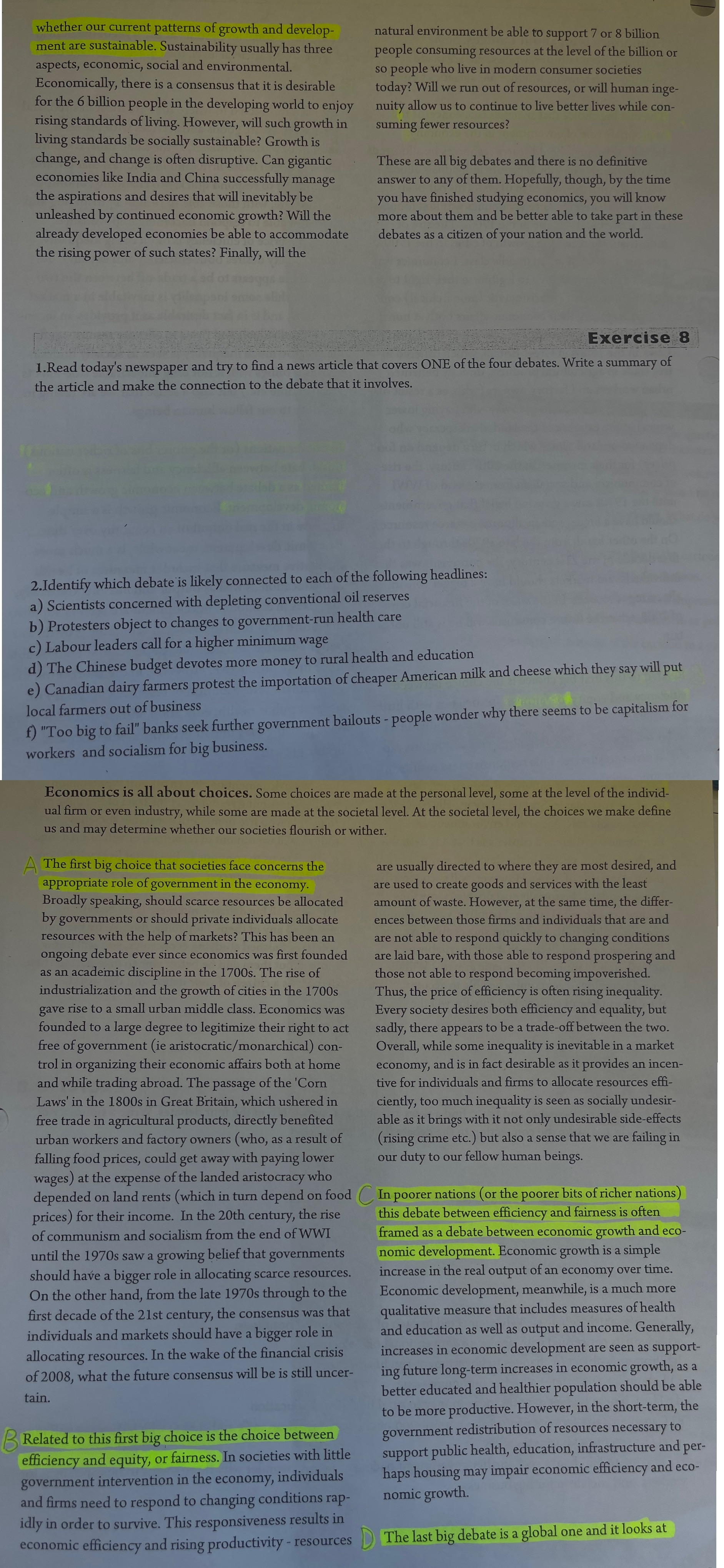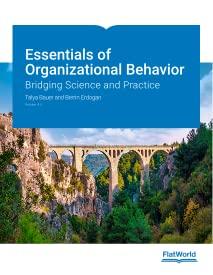Answered step by step
Verified Expert Solution
Question
1 Approved Answer
The four debates ABCD is the sentences I drew with a highlighter whether our current patterns of growth and develop- ment are sustainable. Sustainability usually
The four debates ABCD is the sentences I drew with a highlighter

whether our current patterns of growth and develop- ment are sustainable. Sustainability usually has three aspects, economic, social and environmental. Economically, there is a consensus that it is desirable for the 6 billion people in the developing world to enjoy rising standards of living. However, will such growth in living standards be socially sustainable? Growth is change, and change is often disruptive. Can gigantic economies like India and China successfully manage the aspirations and desires that will inevitably be unleashed by continued economic growth? Will the already developed economies be able to accommodate the rising power of such states? Finally, will the natural environment be able to support 7 or 8 billion people consuming resources at the level of the billion or so people who live in modern consumer societies today? Will we run out of resources, or will human inge- nuity allow us to continue to live better lives while con- suming fewer resources? These are all big debates and there is no definitive answer to any of them. Hopefully, though, by the time you have finished studying economics, you will know more about them and be better able to take part in these debates as a citizen of your nation and the world. Exercise 8 1.Read today's newspaper and try to find a news article that covers ONE of the four debates. Write a summary of the article and make the connection to the debate that it involves. 2.Identify which debate is likely connected to each of the following headlines: a) Scientists concerned with depleting conventional oil reserves b) Protesters object to changes to government-run health care c) Labour leaders call for a higher minimum wage d) The Chinese budget devotes more money to rural health and education e) Canadian dairy farmers protest the importation of cheaper American milk and cheese which they say will put local farmers out of business f) "Too big to fail" banks seek further government bailouts - people wonder why there seems to be capitalism for workers and socialism for big business. A The first big choice that societies face concerns the appropriate role of government in the economy. Broadly speaking, should scarce resources be allocated by governments or should private individuals allocate resources with the help of markets? This has been an ongoing debate ever since economics was first founded as an academic discipline in the 1700s. The rise of industrialization and the growth of cities in the 1700s gave rise to a small urban middle class. Economics was founded to a large degree to legitimize their right to act free of government (ie aristocratic/monarchical) con- trol in organizing their economic affairs both at home and while trading abroad. The passage of the 'Corn Laws' in the 1800s in Great Britain, which ushered in free trade in agricultural products, directly benefited urban workers and factory owners (who, as a result of falling food prices, could get away with paying lower wages) at the expense of the landed aristocracy who depended on land rents (which in turn depend on food prices) for their income. In the 20th century, the rise of communism and socialism from the end of WWI until the 1970s saw a growing belief that governments should have a bigger role in allocating scarce resources. On the other hand, from the late 1970s through to the first decade of the 21st century, the consensus was that individuals and markets should have a bigger role in allocating resources. In the wake of the financial crisis of 2008, what the future consensus will be is still uncer- tain. Economics is all about choices. Some choices are made at the personal level, some at the level of the individ- ual firm even industry, while some are made at the societal level. At the societal level, the choices we make define us and may determine whether our societies flourish or wither. are usually directed to where they are most desired, and are used to create goods and services with the least amount of waste. However, at the same time, the differ- ences between those firms and individuals that are and are not able to respond quickly to changing conditions are laid bare, with those able to respond prospering and those not able to respond becoming impoverished. Thus, the price of efficiency is often rising inequality. Every society desires both efficiency and equality, but sadly, there appears to be a trade-off between the two. Overall, while some inequality is inevitable in a market economy, and is in fact desirable as it provides an incen- tive for individuals and firms to allocate resources effi- ciently, too much inequality is seen as socially undesir- able as it brings with it not only undesirable side-effects (rising crime etc.) but also a sense that we are failing in our duty to our fellow human beings. C In poorer nations (or the poorer bits of richer nations) this debate between efficiency and fairness is often framed as a debate between economic growth and eco- nomic development. Economic growth is a simple increase in the real output of an economy over time. Economic development, meanwhile, is a much more qualitative measure that includes measures of health and education as well as output and income. Generally, increases in economic development are seen as support- ing future long-term increases in economic growth, as a better educated and healthier population should be able to be more productive. However, in the short-term, the government redistribution of resources necessary to support public health, education, infrastructure and per- haps housing may impair economic efficiency and eco- nomic growth. Related to this first big choice is the choice between efficiency and equity, or fairness. In societies with little government intervention in the economy, individuals and firms need to respond to changing conditions rap- idly in order to survive. This responsiveness results in economic efficiency and rising productivity - resources The last big debate is a global one and it looks at
Step by Step Solution
★★★★★
3.50 Rating (157 Votes )
There are 3 Steps involved in it
Step: 1
Exercise 8 1 News Article Summary Unfortunately I cannot access realtime news Please provide a news ...
Get Instant Access to Expert-Tailored Solutions
See step-by-step solutions with expert insights and AI powered tools for academic success
Step: 2

Step: 3

Ace Your Homework with AI
Get the answers you need in no time with our AI-driven, step-by-step assistance
Get Started


